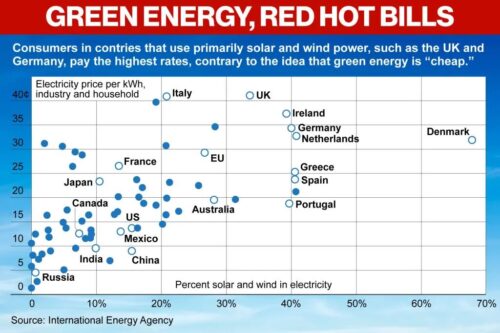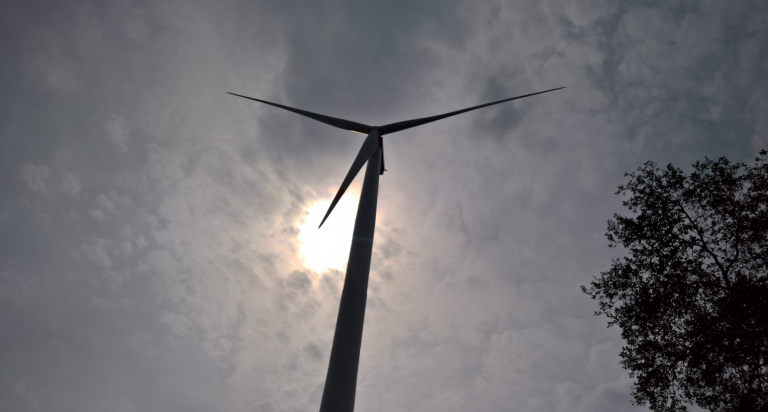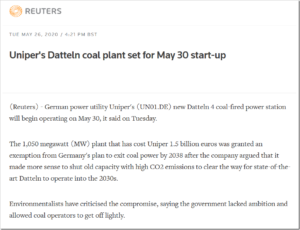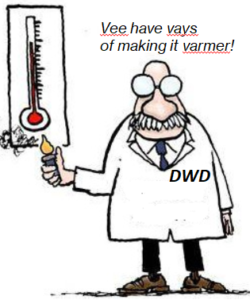German talk show host Sandra Maischberger interviewed climate activist Greta Thunberg in her native Sweden. The interview aired on Wednesday.
Many climate policy critics see Greta Thunberg (19) as a puppet of interest groups who can’t possibly have any motivation of her own due to her young age and lack of education. It is noticeable, however, that she occasionally makes recommendations that can generate downright hatred, especially in Germany, among Green and Fridays for Future circles.
In 2019, Greta already classified nuclear power as a “small part of a big new carbon-free energy solution” – even citing publications from the Intergovernmental Panel on Climate Change.
She was harshly criticized for this and avoided the topic for three years. Since the Greens began in the mid-1970s as scattered citizens’ initiatives against nuclear power plants – which only later also turned to various aspects of nature conservation – energy generation from nuclear fission has become considered as a high-risk technology, and not only in left-wing educated bourgeois circles.
The fact that the civilian use of nuclear power has resulted in far fewer deaths and injuries than, for example, modern traffic or conventional power generation, is often overlooked or deliberately not communicated. The factual situation therefore no longer plays a role here, but only its political usability.
Nevertheless, Thunberg has ventured forth once again with the topic of nuclear power – albeit cautiously – and compares it to coal power, which is also maligned. In words: “If they [the German nuclear plants] are already running, I think it would be a mistake to shut them down and turn to coal.”
In FfF circles, this can already be called courageous because Greta’s popularity is especially large in the rich and populous German-speaking countries where a green-loaded media landscape made Thunberg’s idol figure possible in the first place. Next to Stockholm, Berlin is her main field of activity and here she is always received effusively and with much attention.
From the point of view of the inclined EIKE reader, the above quote is of course at best pragmatic over the short-term, yet it does not show an attitude favorable to a sustainable economic and social welfare development. However, since Brussels redefined nuclear power as a “green” technology months ago, it can be assumed that increasingly parts of the FfF movement are also losing interest in the German government’s misguided energy policy. Perhaps in the near future Greta will already recommend the inherently safe new breeder and DFR reactor types, which already theoretically can no longer be called risky.
The fact that Greta got anointed as an expert without any objective reason is now being questioned from the point of view of nuclear power despisers.
Some in Berlin are trying to denigrate her view. The taz points to approval of Greta’s remark by the CDU conservatives and the FDP free democrats. In addition, lobbyists such as the brother of Eckart von Hirschhausen or Armin Simon are quoted:
“Greta Thunberg is mistaken when she implies that nuclear power plants could help in dealing with the current gas crisis.” (Simon)
“Nuclear power cannot be an instrument of climate policy”, (Hirschhausen, Scientists for Future).
Completely wrong – the more nuclear power plants are on the grid, the more electricity there is, and the cheaper the energy is, which is old familiar market logic. And if there is more electric power, less gas has to be burned to generate it, which benefits the bankruptcy-threatened metal and food industries. Hirschhausen is an economist and thus, in contrast to Greta, an expert. How can it be that the activist without a degree knows more about economics than the economics professor?











